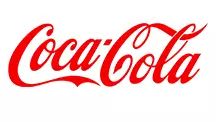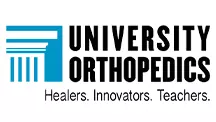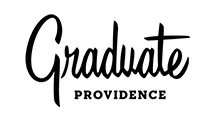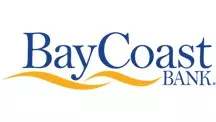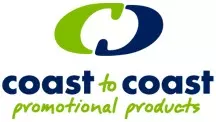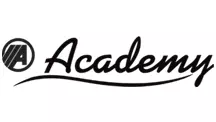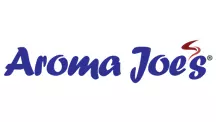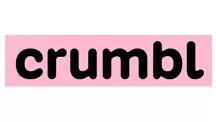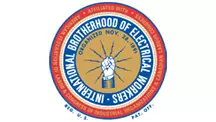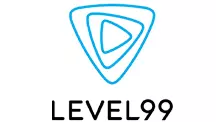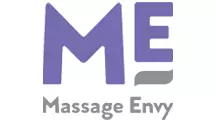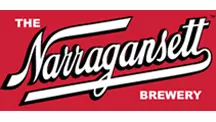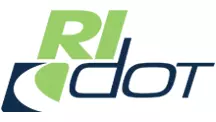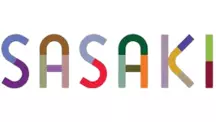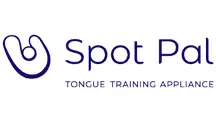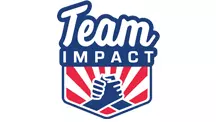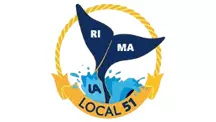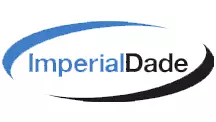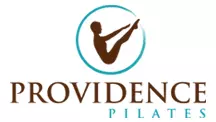Go Forth Unafraid: Lauren Reischer, Cerebral Palsy, and Brown Equestrian
8/20/2019 12:00:00 PM | Equestrian

"Something I always say is that I'm so used to it now and I'm so in tune with it that if someone came to me and knocked on my door and said, 'If you come with us right now, we can cure your CP.' I don't know that I would go because I'm happy with how my body works and my life as it is. I'm happy to be like this or be different forever." – Lauren Reischer, Brown University Equestrian Rising Junior
PROVIDENCE, R.I. – Lauren Reischer is a pretty distinctive individual. She is a first-generation college student at Brown University, biracial, and an ever-positive rising junior on Brown's varsity equestrian team – all attributes that would make her stand out in a crowd, even in her hometown of New York City. What makes her truly unique is how she has faced living with cerebral palsy on a daily basis, competing as an equestrian and earning a place at Brown.
Cerebral palsy affects everyone differently. For Lauren, her main symptom is a stiffness throughout her body that affects her mobility and ability to develop muscle mass. Her CP has improved throughout the years, due in large part to the impact of therapeutic riding. Riding has brought her to Brown and helped her make an impact on others with disabilities through her work with GallopNYC – a non-profit that offers over 600 lessons per week to children and adults with disabilities as well as post-combat veterans.
The Impact of Therapeutic Riding
"When I lifted Lauren up to put her on top of the horse, her legs opened up. It was the first time ever that her legs opened up. It was amazing. I didn't expect it. It caught everybody off guard." – Sol Reischer, Lauren's Father and Vice President of GallopNYC
As a 20-year-old college student, Lauren's cerebral palsy primarily affects her legs and right arm, but as a child her CP manifested itself in a much more severe way.
As a young child, Lauren's torso and upper body were so tight that it was difficult for her to swallow. Doctors feared that she might never speak as she might not have enough core strength to produce sounds. Lauren could not crawl, and it was difficult for her to sit upright.
Lauren's hips and pelvis were so tight they pushed her femurs out of her hip sockets. In order to correct the issue, Lauren had extensive hip surgery in which her femur bones were cut in half, taken out of the hip socket, and then pinned back into place, leaving her in a full body cast for three months.
Coming out of surgery, Lauren took part in over 25 hours per week of physical therapy as she worked to re-train her body to work with her legs. Throughout this process, Lauren could not spread her legs on her own as her brain did not recognize her legs as two separate limbs.
"We saw a lot of results from the therapy, but it wasn't really as much as we had hoped," Lauren said. "My rehab specialist recommended that I try therapeutic riding. She thought that the motion of having my legs apart sitting and that practice of having your body move with the horse would help train my legs to walk."
Thus, as a three-and-a-half-year-old, Lauren made her first trip to try therapeutic horseback riding.
"Because my legs really did not separate on their own above the knee, my dad pulled the people aside and said, 'Listen we may just have to put her on, on her knees and hold her there.' They said, 'Don't worry, we've got this, just wait until you see,'" Lauren said.
Volunteers – including two off-duty, uniformed New York City mounted police officers – led out Volton, a Clydesdale weighing over 2,000 pounds.
"When they picked me up, my legs separated on their own for the first time ever," Lauren said. "I don't know if it was because I had just made that connection on what was supposed to happen, but it worked. I sat on the horse upright with my legs separate."
"When I lifted Lauren up to put her on top of the horse, her legs opened up," Sol said. "It was the first time ever that her legs opened up. It was amazing. I didn't expect it. It caught everybody off guard."
With that first lesson, Lauren began a 10-week program that Lauren credits with helping her first learn how to walk.
"To date, that was the most therapeutic activity that we tried," Sol said.
The Experience of Riding
"Being at the barn was another type of classroom for me. We were all connected by this thing that we love. We all have our horses. I could ride with them. It was an activity – just like girls who do after-school gymnastics together – it was our thing. Whether or not I was disabled didn't affect my ability to keep up with them riding." – Lauren
After her initial success, riding became the center piece in Lauren's life.
School always acted as an accessible place for Lauren, but outside of school it became more difficult for her to become involved in social settings. Riding changed that.
"While it was a bummer to be left out of things, riding was the thing that I could do," Lauren said. "It was something that was mine. Growing up in New York City, kids don't just ride horses. To have something so unique meant the world to me."
She took every opportunity she could to ride and engaged in the full experience of the emotional community of riding and team atmosphere at the barn.
"Being at the barn was another type of classroom for me," Lauren said. "We were all connected by this thing that we love. We all have our horses. I could ride with them. It was an activity – just like girls who do after-school gymnastics together – it was our thing. Whether or not I was disabled didn't affect my ability to keep up with them riding."
And as accepting as other riders at the barn were of her, horses offered another level of acceptance, and Lauren formed deep bonds with each horse that she rode.
"Whether or not I have crutches doesn't matter to my horse," Lauren said. "A lot of horses when they first see my crutches, they can be nervous because they don't really understand. But they get used to it. As soon as I get on their back, they don't ride differently for me. They don't understand that."
Go Forth Unafraid: Working through Challenges
"The biggest takeaway that I have from riding is patience. You have to communicate with a horse that is 1,500 pounds and not only doesn't speak your language but doesn't speak period. Having to rely on your body which is something that will always naturally be difficult for me, nothing will come just like that. It takes patience." – Lauren
Throughout her life, Lauren has taken on challenges head on, embodying the motto of her high school, the Dalton School – "Go Forth Unafraid."
Lauren has learned that even though she might not progress at the same rate as other riders, through her experience she has found that just because she cannot do something in the present, that does not preclude her from accomplishing that feat in the future.
"I love that phrase – Go Forth Unafraid," Lauren said. "It's right to the point. You have to go forth unafraid. You can't be afraid of a challenge. When you have a disability, there are going to be challenges that you face every day. Being able to work through fears or doubts in the moment is something that I've developed a really good skill at through riding."
For his part, Sol gives Lauren all the credit for the ways in which she has found solutions to handle problems in her life.
"It's all Lauren," Sol said. "That's not me or my wife or our family and friends. It's all her. She's much more adventurous than we are. Over the course of many years we've learned to let her do what she thinks is best."
Perhaps most importantly, Lauren has learned to accept her disability and found ways to adapt to her physical condition. Her experience riding as a young person has helped her form new bonds and relationships in the communities of Brown and Southern New England.
The Community of Brown Equestrian
"The fact that Brown was able to say, 'Yes, you know how to ride, there is no reason why you can't be on the team.' That is the kind of treatment that I've never gotten before which is pretty unbelievable. I love being on the team and being able to take it with this level of seriousness." – Lauren
The Brown equestrian program has become a central part of Lauren's experience during her time on College Hill. It takes just six words for her to express what the team means to her.
"I love this team so much," Lauren said.
Riding competitively outside of college does not always offer a team experience, but competing at the college level with the Intercollegiate Horse Show Association (IHSA) allows for riders of all ability levels – from the novices in walk-trot to the advanced riders in open fences – to compete.
For its part, Brown has provided the opportunity for Lauren to compete.
"Being able to be on the team means a lot to me," Lauren said. "I can understand why a lot of different schools wouldn't want me to ride on a varsity team for liability reasons. The fact that Brown was able to say, 'Yes, you know how to ride, there is no reason why you can't be on the team.' That is the kind of treatment that I've never gotten before which is pretty unbelievable. I love being on the team and being able to take it with this level of seriousness."
Her teammates have shown Lauren tremendous support, and for their part, her teammates are ecstatic to have her on their team, leading them to select her as the team's Social Chair.
"Lauren is possibly one of the most unique people I have ever met," Brown equestrian rising senior captain Renee Seto said. "She is so much fun to be around. She is so inspirational but also so down to earth. She'll talk to anyone about anything for hours at a time. She is so much fun to have on the team. She's helped us create a great welcoming environment for all of the new people we took this year."
For those in the program, there was a sense of the unknown in taking on a new teammate with a physical disability. What began as an understandable initial sense of hesitancy has quickly gone away.
"When I first met Lauren, I was a little bit over my head in how she was going to fit into the team and the riding program and how I would be coaching her," Brown equestrian head coach Michaela Scanlon said. "Now, basically it is just a matter of logistics, and once she is up on the horse she is just another rider on the team."
Seto echoed a similar sentiment.
"When Lauren first joined the team, I remember we were all a little hesitant about how it would all work out," Seto said. "We had to figure out what she needed from us. It was really incredible how open she was about communicating with us. From day one, she was just one of our teammates doing the same things as everyone else. If she needed help, she asked for it, and it wasn't weird. Once she's on the horse, she's just an equestrian. There is absolutely no difference."
Brown recent alumna and former captain Katrina Heilbroner tried out for the team at the same time as Lauren and remembers another prospective team member asking Lauren 'What happened?' when seeing her crutches – Lauren's personality led someone new to her to believe she was merely injured rather than someone with a chronic condition.
"She's never made a big deal out of her disability," Heilbroner said. "She just lives with it. To see her persevere and be just as good of a rider and push through challenges – it makes all of our little 'Oh, I'm sore,' or 'Oh I don't want to wake up early,' harder do take seriously. She's a great role model, especially for a lot of the new team members."
For one of those new team members, rising sophomore Claire Hodges, Lauren has served as a mentor and a friend as she adjusts to life in college.
"Lauren is one of my favorite people," Hodges said. "She's so supportive. She's always so happy and in such a good mood. She's a great rider, great athlete, and so good around the horses. She's been a mentor for me on the team and to adjusting to college life in general."
Lauren has even had an impact on her head coach.
"Lauren brings an extra dimension to me as an educator," Scanlon said. "She has educated me to take a more in-depth look at how we as riders are balanced on the horse, how our legs, hands, voice, and back are all the aids that we use to communicate with the horse. It's really made me go to a deeper dimension of understanding how a rider is communicating to a horse. It makes coaching a team worthwhile."
The Equestrian Community of Southern New England
"Lauren is strong and brave. She has the heart. Even though maybe her body isn't there 100 percent, her heart pushes and pushes and makes up for it. If you don't have the heart to do this sport, it doesn't matter how physical you are in terms of what you can and can't do, it's not going to make a difference if you don't have the dedication and the heart to do it. That's why she is my favorite." – Tommy Andreozzi, Lauren's personal coach
While Lauren takes regular lessons with Scanlon in Warren, R.I., at Windswept Farm – the home barn for Brown's equestrian team – she also boards her personal horse in Rehoboth, Mass. The equestrian community of Southern New England – including coaches Dawn Dorrance and Tommy Andreozzi – has created an additional sense of community for Lauren.
"Lauren has come a long way," Andreozzi said. "She's an inspiration. She's always positive. We know that she has limited range of motion in her ankles, but it never brings her down. She only tries harder. She's a phenomenal student. I think she's an inspiration for all of us. Sometimes we take for granted how much we can do. Then we see someone who is challenged, and they are doing it."
Lauren became a part of the Southern New England equestrian community after arriving at Brown in the fall of 2017 and has become one of its most well-liked members.
"When she walks into the barn, everyone goes over to Lauren to talk to her," Dorrance said. "She is a great rider. All the kids look up to her and love her. She gets along with every horse in the barn – they all love her."
Similar to Lauren's Brown equestrian teammates, Andreozzi has seen his perspective change on what is possible for an equestrian rider with cerebral palsy.
"When I first saw Lauren walk down the driveway and I saw her crutches, I was like 'Really? How is this going to happen?'" Andreozzi said. "I was very nervous for her. We don't have a handicapped facility for Lauren, how are we going to get her on a horse?"
Working directly with Lauren over the last two years, Andreozzi's attitude has changed entirely.
"I don't think of handicapped as a sensitive, delicate person anymore," Andreozzi said. "They are like everybody else, they just have a limited range of motion. They are still a person with a brain and a body that still works. How their bodies function might be different from my body, but it doesn't mean they can't achieve certain goals. I never thought that could be possible until I met Lauren. She's proven us wrong. She's determined."
Giving Back with GallopNYC
"Lauren is always looking to give back. She's always looking to pass on what she's picked up in her 20 years to help others. I'm proud of her. She didn't get that from me. It's all her – 99 percent of what people think her parents are doing is actually what Lauren is doing to us. We picked it up from her. She makes us better, not the other way around." – Sol
Lauren has not kept her love of equestrian to herself, but instead she has played an integral role, alongside her father, Sol, in GallopNYC – a non-profit that offers therapeutic horseback riding lessons to children and adults with disabilities in New York City.
Gallop provides over 600 lessons per week to riders with a variety of disabilities, ranging from the social to the emotional to the physical to the mental. A majority of the organization's riders are low income, and there remains a tremendous demand for therapeutic horseback riding with a wait list of over 900.
During her time with Gallop, Lauren has helped support new riders with the program and has taken on increasing responsibilities over the years, training more than 10 therapy horses for the organization.
Sol – a member of Gallop's Board of Directors and a Vice President with the organization – has seen the non-profit grow from a few riders that rented horses to a group that has helped develop a seven-acre facility in the Howard Beach-Lindenwood area of Queens. He puts the impact of Gallop quite succinctly.
"We see miracles every day," Sol said.
One of Sol's most poignant examples of the impact of Gallop comes through his experience seeing the development of non-verbal riders.
"During the 10 weeks when one or two of those children say their first words, the teachers are balling," Sol said. "They are on the other side of the fence and run into the ring with phones in hand to video tape. They can't wait to tell the parents and their principal. It is literally fantastic."
Through Lauren's experience, therapeutic horseback riding has become a central component of the lives of both father and daughter.
"It's a pleasure to be part of it," Sol said. "I love that Lauren, even though she is up at school, helps out all the time. She is constantly involved in Gallop. She calls all the time and takes care of many of the chores. I'm very proud of her for keeping up with it."
Telling her Story
"Lauren is a gifted communicator. It comes from the heart. I find that if Lauren is in front of a room and explaining where she came from, how she got to Brown, how strongly riding and Gallop has been a part of her life, she gets that message across. They feel it inside. It's quiet in the room. You can hear a pin drop." – Sol
Lauren's story helps shed light on the experiences of people with disabilities – an historically underrepresented group. That Lauren is willing to tell her story makes a world of difference.
"A lot of people with disabilities don't know how to share their stories or don't feel comfortable, but since I am comfortable being able to share my story and let people know about a kind of life that you don't really hear about in the same way you hear about race and gender is something that is really cool," Lauren said.
Yet Lauren is humble in her story. While many others consider her an inspiration, she does not necessarily think of herself in the same way.
"Even though going through a lot of medical procedures and dealing with a lot of socio-emotional stuff with my disability is challenging, when I think of someone who is an inspiration, I think of someone that has gone through a lot more than me," Lauren said.
For Sol, Lauren's development from a child that could not swallow on her own to a member of Brown University's varsity equestrian team is an incredible one.
"Never thought it was possible," Sol said. "Prayed and prayed and prayed. It was hard, especially the months when we first found out. It was tough. We didn't know if she was going to be able to talk or go to school. It's scary. You have to worry about the medicine and the bills. It was a lot. My first thought was, 'Be happy, live.' Whatever is going to be is going to be, and we are going to be there 100 percent."
For Lauren, her disability has become a part of her identity that she has accepted wholeheartedly.
"It doesn't really matter to me how people see my disability because at the end of the day, I've accepted it and all that it has taught me and has to offer me still," Lauren said.
Sol provides a similar perspective as a proud parent.
"It's part of who she is," Sol said. "To me, I wish she didn't have any of these issues, but I couldn't be happier that Lauren feels happy in her skin and with who she is and who she has become. She has every right to. I couldn't be prouder of her. My wife, my family, my friends – she has made an impact on all of us."
Lauren's acceptance of her physical condition is truly empowering.
"Something I always say is that I'm so used to it now and I'm so in tune with it that if someone came to me and knocked on my door and said, 'If you come with us right now, we can cure your CP.' I don't know that I would go because I'm happy with how my body works and my life as it is. I'm happy to be like this or be different forever."
Players Mentioned
Brown University 50th Anniversary Event Recap
Friday, April 11
Brown Athletics 2024 Happy Holidays Video
Friday, December 20
Brown Athletics Recap: 2023-24
Tuesday, June 18
Catalina Coral pops bubbles in Lisboa park #evertrue
Sunday, June 02










